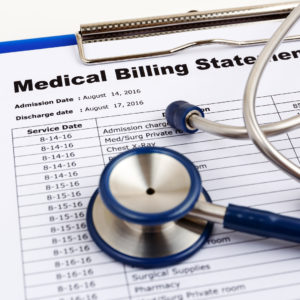The fourth piece of legislation addressing the fallout from the coronavirus pandemic and subsequent shutdowns could arrive sometime in July, and reports suggest that included may be an answer to the problem of surprise medical bills.
While best practices would see such a complex problem addressed in stand-alone legislation where it can receive a robust debate and thorough vetting, if Congress insists on including a surprise billing fix in the next COVID relief bill it is imperative that it not include price controls.
Surprise bills most often occur when patients receive treatment, typically for an emergency, at a facility they are led to believe is in-network for their insurer but that includes providers who are out-of-network.
Insurers in recent years have contributed to the problem by narrowing their networks and misleading consumers regarding their out-of-network benefits, or lack thereof. The directories of in-network providers that insurers are mandated by state and federal laws to maintain have also been found by several studies to contain high error rates.
Despite these unscrupulous practices, those leading the charge in Congress seem to favor the approach preferred by insurers.
They want to impose price controls on providers and force them to charge for out-of-network services using rates from in-network providers in the region. This would further empower insurers to negotiate in bad faith and create even more powerful incentives to narrow networks and thus manipulate the price of health services.
Recently, 27 members of the Coalition Against Rate Setting (CARS), including my organization The Center for Freedom and Prosperity, signed a letter urging the Trump administration not to support “rate-setting” to address surprise billing.
It warned that “rate-setting would only make the problem worse, and lead to the widespread consolidation of hospitals, clinics and doctor’s offices across the country.”
There is no problem that has ever been made better by the imposition of price controls. Whether they be for gasoline, housing, loan interest or food, price controls have consistently resulted in scarcity and rationing.
Another CARS letter, signed by more than 160 economists, emphasized this point: “No matter the policy area, government price controls often result in shortages and market distortions. These outcomes should be avoided, especially when dealing with important health care services like emergency room visits and physician care.”
We have seen this play out already.
California tried rate-setting to address surprise bills and it accelerated provider consolidation, which research shows undermines quality of care and patient access.
An alternative, demonstrated in New York, has shown more promising results. Its adoption of an arbitration system called Independent Dispute Resolution saved consumers $400 million over four years thanks to a 34 percent reduction in out-of-network billing.
Recent trends suggest that the challenges presented by the novel coronavirus are likely to continue for the foreseeable future.
This is putting tremendous strain on our healthcare system.
Providers are scrambling to find and implement effective treatment protocols while protecting staff, while also suffering financially as many who would otherwise seek treatment for all manner of ailments stay home for fear of contracting COVID-19.
Imposing price controls on healthcare providers would be to compound viral disaster with man-made calamity.

